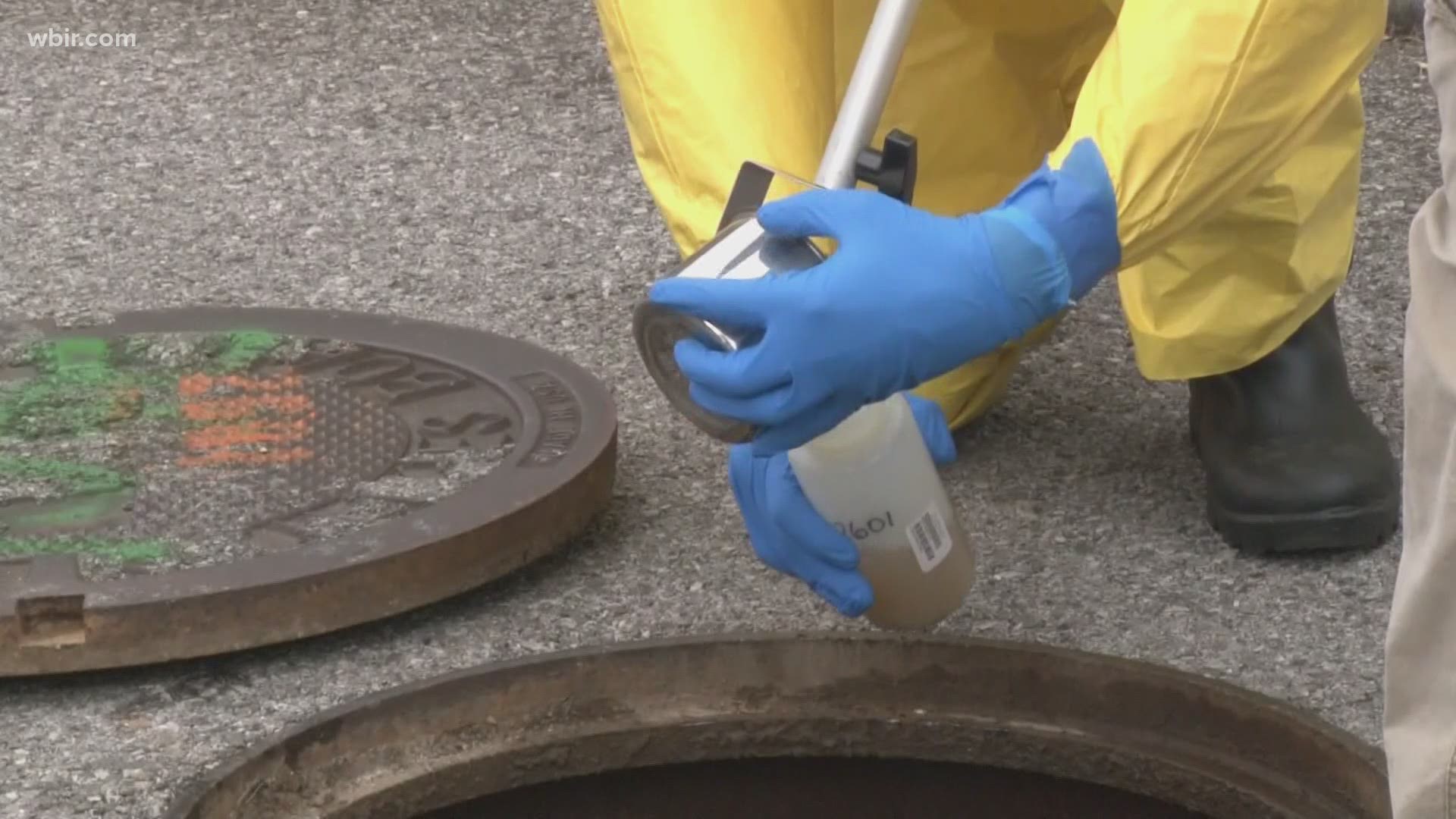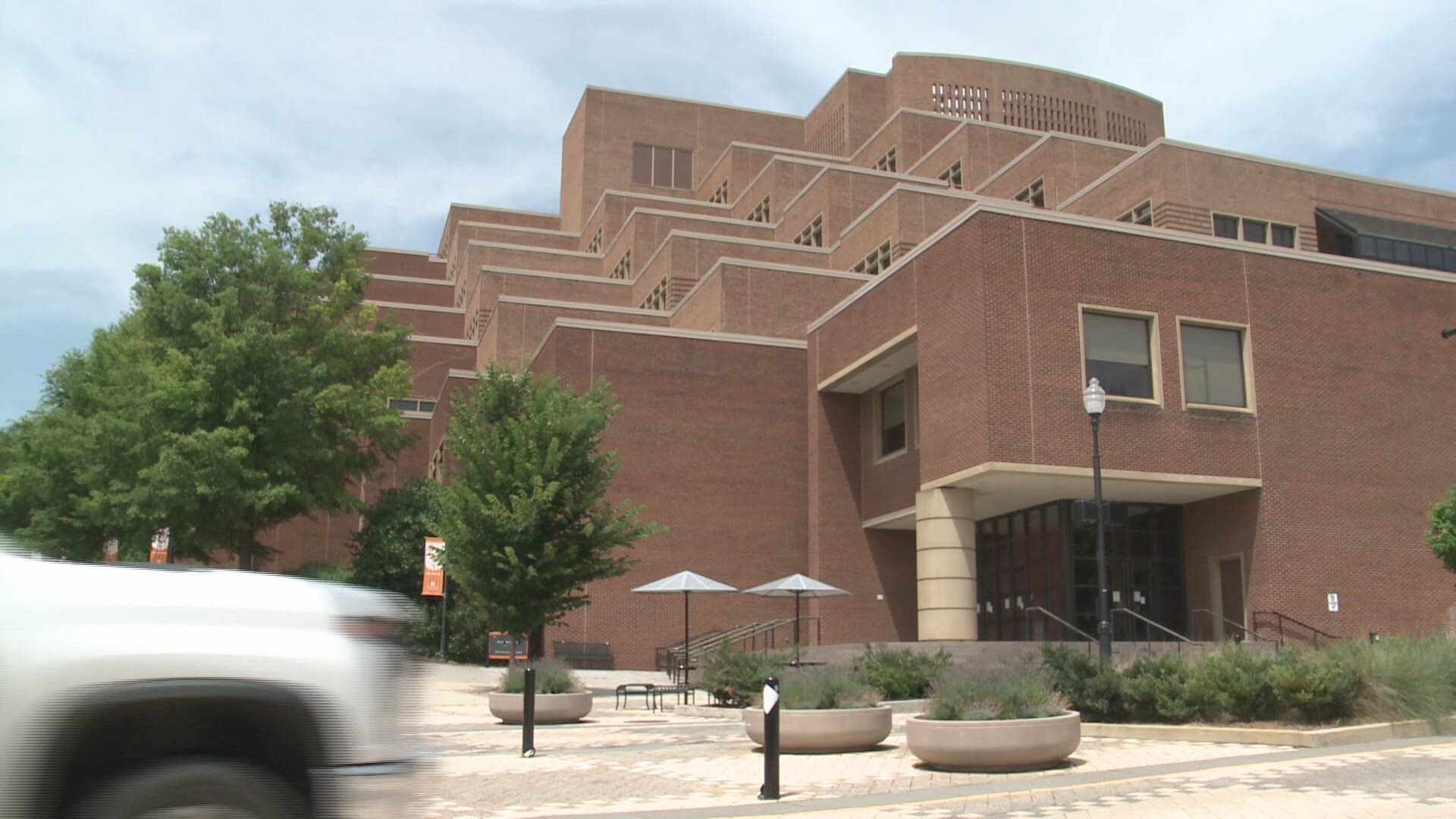KNOXVILLE, Tennessee — In order to slow the spread of COVID-19 on campus, the University of Tennessee is testing for the virus in wastewater and saliva samples.
But it isn't going as well as the university had hoped.
"Our [community saliva pool] participation rates are suboptimal," said Dr. Spencer Gregg on Friday, director of the Student Health Center. "We would like to see those rates as high as in the 90th percentile."
For the week of October 5, the university conducted community saliva testing for Carrick North, Carrick South, Fraternity Park and anyone who missed the first pooled testing at Hess, White, Dogwood and Magnolia.
The participation rate was just 48.2 percent — down significantly from 64.7 percent the week of Sept. 28 and 61.3 percent the week of Sept. 21.
"[I'm] not happy about that," Chancellor Donde Plowman said on Friday. "As a reminder, if you live in our residence halls or sorority or fraternity housing, you are required to participate."
The on-campus saliva testing program typically processes samples in groups of 3 or 5 for testing. If the pool has positive results, those students will be referred to the Student Health Center for individual PCR testing.
"If a student does not submit a sample on the day requested or doesn’t participate in a make-up day, and they have not made arrangements with their hall or house director, they are referred to the student conduct process," a university spokesperson said.
Pool testing will continue through the spring semester, Chancellor Plowman said.
Dr. Deborah Crawford, UT's vice chancellor for research, said the campus has the ability to go through up to 2,000 pooled tests a week. The process helps educators understand the hidden spread of the disease so it can be caught earlier.
States and cities don't have the capability to perform such mass testing, she said. If they did, COVID-19 could have been caught and addressed much earlier this year, she said.
She also discussed how wastewater testing on campus has been going so far.
"In the context of this pandemic, wastewater epidemiology is still an evolving science," Dr. Crawford said.
After five weeks of wastewater testing, data obtained by 10News shows the testing uncovered 10 locations on campus with an "intermediate" spread of the virus.
Only one location — Kappa Alpha — has had "high virus concentrations detected," according to university data from October 12. But the university said they did not have any positive saliva pools in follow-up testing.
"They're still adjusting their sampling techniques to try to better understand how the results from these tests can be most valuable in monitoring virus spread," Dr. Crawford said on Friday. "[The teams] are continuing to refine our wastewater testing techniques."


